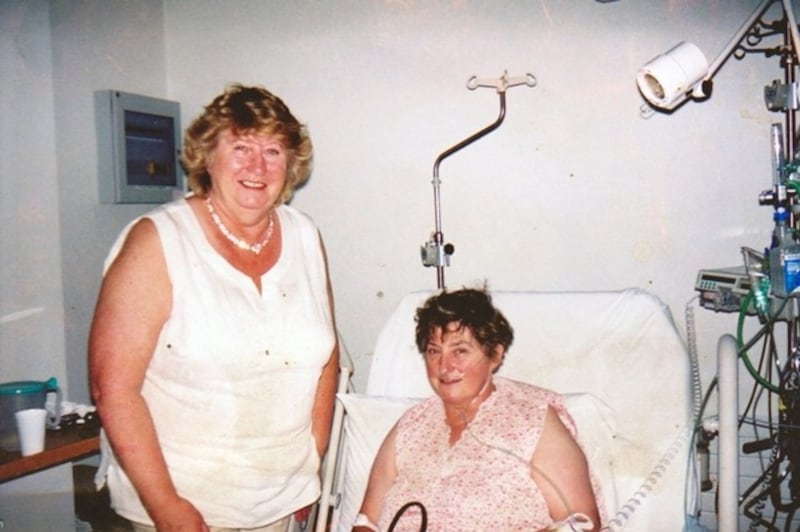Last week's announcement of the creation of an organ donor programme for the UAE truly made this year’s Ramadan a month of giving for me.
My mother, Katie Daly, had a heart transplant on November 24, 2006 at The Mater Hospital in Dublin, Ireland. A general collapse in her health pushed her to the top of the waiting list, but with so many variables this was still no guarantee of finding a suitable match.
Crisis brings people together in a way few other things do. The UK and Ireland share donors. As timeless neighbours and despite a sometimes troubled history, the people have a positive genetic disposition to each other. Many of the medical staff have trained and worked in both countries, sharing language and culture.
Leading up to the operation, typically you will not be told that it has been scheduled. Flights of professionals carrying out batteries of tests will file through your life. I learnt to trust them. Even if aspects of their work appeared strange, in the aftermath of the operation it begun to make sense. You can always trust the transplant team to act in the best interests of the patient.
I was living in London when the operation was carried out. It took place on such short notice I couldn’t get to Dublin in time to watch her trolley roll towards the theatre. As one of three key contacts, a family liaison nurse kept my father, sister and I updated with the operation’s progress.
I recall quaking slightly at being told on the initial call that many conversations between us would not be easy. Happily, we spoke only twice throughout an operation that lasted about seven hours.
Dubai beckoned and shortly afterwards I moved to the UAE, travelling home every two months. Flying out on the early hours of Friday morning and returning early the following week, I maximised that time that I could spend at home. My sister flew back from London almost weekly. My then fiancée also visiting regularly.
Family and friends offered incredible support. The other group to enter our lives were the transplantees my mother got to know while in hospital and those who had operations or were waiting for them in the wider home locality. You never realise how much you have in common with someone you would otherwise pass in the street until you walk into a location that treats shared and specific ailments.
The outcome of any operation involves uncertainty. Many transplant patients go on to lead very normal lives, albeit with regular monitoring. My mother’s experience was mixed, but supported by the post-op care and local team, who became an extension of our family, we all adapted to support and ensure she had the best possible quality of life. That she did.
Transplanting organs is a relatively new field, the first having taken place in South Africa in 1967 and progress is being made all the time. There are people alive who have not needed transplant operations because of the medical advances developed on the experiences of treating those who had.
Receiving a foreign body, in my mother’s case a heart, is viewed with aggressive suspicion by your immune system. The cocktail of anti-rejection drugs each person takes is pretty much unique. It’s also a moving target.
Our family business’s working environment was not a factor in the congenital condition Mum’s heart had, but the enormous amount of people she interacted with had unexpected consequences for her immune system. There were few infectious bugs that didn’t get carried over the business threshold, which means my family’s immune system is exceptionally well honed to taking on any ill willed bacterial outsiders.
A battle royale raged between her new heart supported by antirejection drugs and her immune system. There could be no winner. Instead, an ongoing balance to ensure a war without end was waged. It’s quite surreal when you consider it.
The family who gave salvation to my mother chose not to make themselves known. In the moments of their own loss they thought of others. I do not know if they knew that it was my family that was given hope, but whenever my mother comes to mind, my thoughts turn to them
My mother passed away peacefully five years ago. Every year since, our family and friends gather on that anniversary and give thanks for her life and to the people who supported that life in ways we could never have foreseen only a year before her operation.
There is little achievable beyond an act of love that gives life to another.
If you can register as a donor in your home country or in future in this country, please do so and carry your donor card.
David Dunn is a regular contributor to The National





